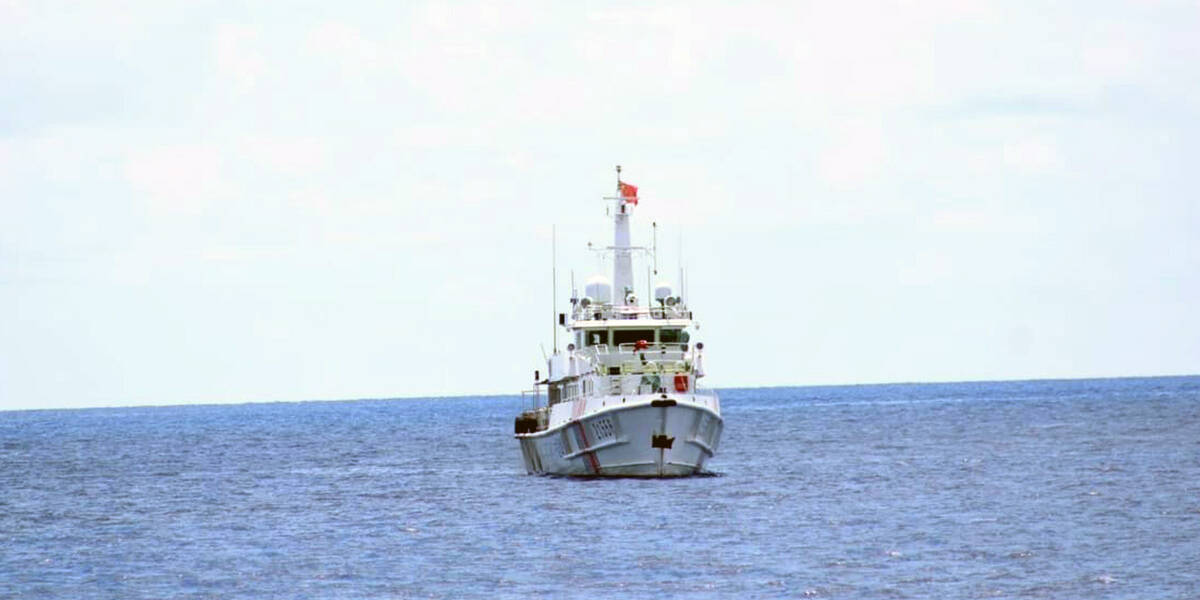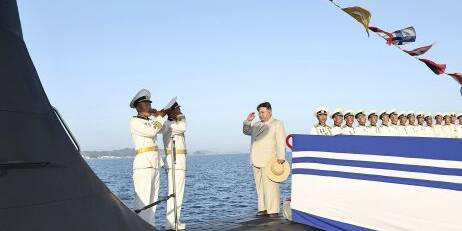Aristyo Rizka Darmawan, The Australian National University, for East Asia Forum
As the 2024 Indonesian presidential election heated up, the country’s electoral commission hosted the third round of five presidential candidates’ debates on 7 January, focussing on foreign policy and national security. The South China Sea was one of the most important points discussed.
The South China Sea dispute has become one of Indonesia’s most important security issues. It is the only hot spot where there is a potential for military clashes with foreign countries. Considering what happened with the Philippines in December 2023, it seems China will maintain its assertive behaviour in the disputed area.
The conflict is also consequential because it involves China — one of the increasing powers in the region. Indonesia’s strategy will show how it views China as a growing economic partner but also as a major threat.
During the January presidential debate, questions about the South China Sea were addressed to Ganjar Pranowo, and the other two candidates — Defence Minister Prabowo Subianto and former Jakarta governor Anies Baswedan — were invited to respond to Ganjar’s answers. Ganjar reiterated that Indonesia is not a claimant in the dispute. He argued that Indonesia has abundant potential to play a role in managing the conflict. He specifically pointed out that in the past 20 years, there has been little progress on the dispute.
With the recent Declaration of Conduct of Parties in the South China Sea and the related ongoing Code of Conduct negotiations, the dispute remains a big issue for the region. Ganjar suggested that Indonesia should initiate ‘provisional measures’ to maintain peace and security in the disputed area. But it is not clear what he mean by ‘provisional measures and how such provisional measures can manage the conflict.
The United Nations Convention on the Law of the Sea (UNCLOS) provides a framework to create provisional arrangements in an undelimited maritime area. In practice, some countries have already implemented such provisional arrangements in a different type of maritime dispute — mainly to address resource management in the disputed area. Yet, what Ganjar wants to offer on these points and how this might differentiate from the ongoing Code of Conduct is unclear.
In his last remarks, Ganjar pointed out that it is important for Indonesia to ensure its sovereign mining rights in the North Natuna Sea. In the past few years, there has been tension with China regarding Indonesia’s Tuna Bloc exploration, which China argued is part of its nine dash-line.
Anies Baswedan had a different perspective, arguing that what is missing from Ganjar’s strategy is how Indonesia should use and keep faith in ASEAN to deal with the dispute. He pointed out that ASEAN needs to have a solid and unifying position in addressing the issue. Anies mentioned that the issue of ASEAN dealing with China stems from countries such as Laos and Myanmar, which have close relationships with Beijing.
ASEAN’s role in the South China Sea has always been patchy. Some analysts argue that ASEAN is the right venue because it provides a stronger bargaining position when facing China regarding the issue. Yet, ASEAN has always had differences in addressing the issue. In 2012, under Cambodia’s chairmanship, ASEAN failed to issue a statement on the South China Sea. It wasn’t until December 2023 that ASEAN issued a firm statement on the matter. By relying solely on ASEAN, significant progress in the South China Sea is unlikely.
In response to Ganjar’s debate statement on the South China Sea, Prabowo Subianto did not mention any avenue or strategy that Indonesia should use to maintain peace and security in the disputed area. Instead, he only underscored how Indonesia should build a strong maritime defence capacity so that it can defend itself in the North Natuna Sea. The Indonesian Navy and Coast Guard’s maritime defence and capability is crucial. With this strategy, Prabowo is the candidate who will likely enforce a more assertive policy in the North Natuna Sea compared to the other candidates.
But relying solely on military capacity will not significantly help to maintain peace and security in the disputed area. To show leadership in ASEAN, Indonesia should not only think about itself but think of a bigger role in assisting the region avoid escalation and conflict.
In each candidate’s official vision and mission document, only Ganjar does not specifically mention Natuna. Anies Baswedan points out the significance of ensuring sovereignty, upholding national security and protecting marine resources in Natuna Island.
Prabowo mentioned the South China Sea as one of the strategic challenges that Indonesia is facing. His documents elaborate that it is potentially a major conflict for two superpowers — the United States and China. Indonesia should anticipate future conflict and strategise how to mitigate any potential threat.
The South China Sea is one of Indonesia’s biggest potential traditional security threats. The presidential candidate’s strategy on the South China Sea is important to ensure the sovereignty and sovereign rights of Indonesian territory and show Indonesia’s leadership in ASEAN in addressing regional challenges.
The original article can be found here at East Asia Forum.
Aristyo Rizka Darmawan is a PhD Scholar at The ANU College of Asia and the Pacific at The Australian National University and Lecturer in International Law at Universitas Indonesia
Feature image: via Wikimedia Commons
Related Analyses
September 15, 2024
West Philippine Sea: Several factors force BRP Teresa Magbanua to return – PCG
0 Comments1 Minute


